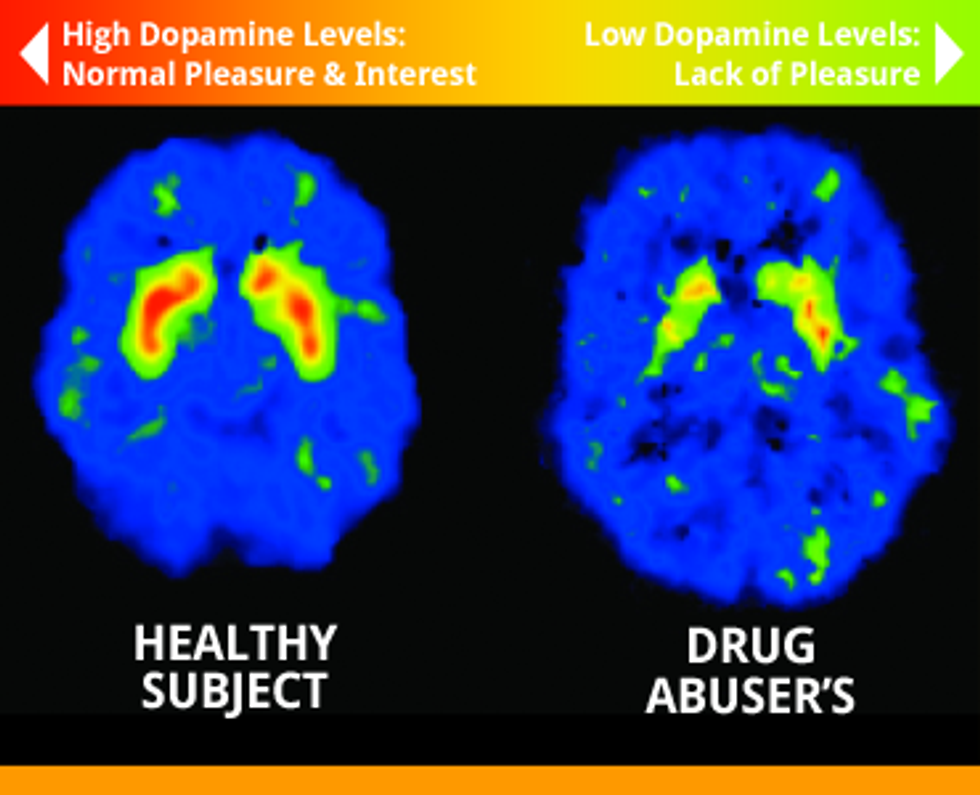"Why can't you just STOP doing drugs/drinking?"
"Do you like seeing your friends and family so worried about you all of the time?"
The answers to these two questions are very common among people plagued with addiction. The answers to these two questions maybe seem like a yes, but in reality, drug and alcohol abusers find it extremely hard to stop and, in actuality, they do not want to put their family through the turmoil they put them through on a daily basis. They WANT to stop, they just do not know how. Addiction has been making the top headlines in the United States and around the world due to the overwhelming number of fatalities associated with drug and alcohol abuse. Nearly 1 in 10 people are addicted to alcohol or other drugs in the United States. This article will go into the specific science behind addiction to show that it is in fact a sickness, and that drug abusers aren't just trying to set the bar low for themselves and potentially die.
Addiction is widely considered a disease of the mind. Addictive behavior is rewarding and reinforcing. If something we do in our brain feels pleasurable to us, we will want to do it again and again. The addicted person can know and even receive all of the negative consequences in the world for doing drugs, but yet still does it. The need or the drive for the drug matters more than potentially losing everything for it. The brain is responsible for coordinating and performing different functions in the body, and signals are always sent to different parts of the brain from different places. According to the National Institute on Drug Abuse, "drugs are chemicals that affect the brain by tapping into its communication system and interfering with the way neurons normally send, receive, and process information." Addiction truly hijacks the brain. When a person uses drugs, excessive amounts of dopamine are released, causing a euphoric state. Dopamine is a natural chemical the brain makes when something, like food or sex, feels good. The euphoria the person undergoes will cause the person to want to repeat the behavior that causes the flood of Dopamine and thus, feeling good.
It is important to note that some people can occasionally smoke a cigarette, or drink, while others get addicted. Why is this? Scientists are tapping into a potential gene for addiction. This can explain why some people are born with more addictive personalities, while others are not. The person's vulnerability to stress and the age at which they start using can also impact their predisposition to becoming "addicts".
This goes to show that addiction is not simply about willpower, and it does not happen to people with bad morals. The nicest, smartest person in the world can fall victim to this disease, and that is what usually ends up happening. Before you judge the addicted person, it is important to note that addiction forever changes how the brain works, and with proper counseling and treatment, the addicted brain can start to recuperate to what it once was.





















